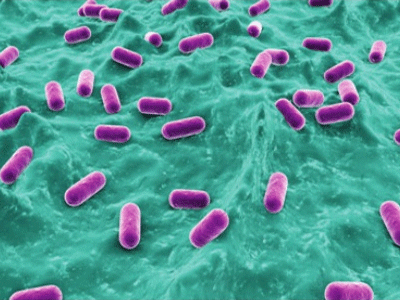- News
- lifestyle
- health-fitness
- health-news
- The solution's in your gut
Trending
This story is from January 4, 2016
The solution's in your gut
Recent studies and research have given doctors reason to believe that our gut bacteria could help prevent obesity, bowel cancer and diabetes.

Recent studies and research have given doctors reason to believe that our gut bacteria could help prevent obesity, bowel cancer and diabetes.
Our gut bacteria aren't just important -they're essential to our health. These bacteria can only be seen with the aid of a microscope but, incredibly, they add up to about 1.8 kg of your body weight. Most people think having bacteria in your bowel is dangerous.Now scientists think of our `microbiome' as an extra, useful organ.Of all the cells in our bodies, 10 per cent are human and 90 per cent are bacteria.
According to Robert Karp, in charge of the Human Microbiome Project for the US National Institutes of Health, the bacteria in your gut are a crucial part of your immune system, and until 10 years ago, we just didn't have the technology to understand them.
Where do we get them from in the first place? We actually acquire our bacteria while being born. Yes, as we make our way through the mother's birth canal, we pick up millions of them.
Gut bacteria have an additional role to play. In 2006, a study showed that fat and thin mice have completely different gut bacteria. Also, if you give a thin mouse the gut bacteria of a fat person, it gets fat, even on the same diet. Conversely, a thin person's microbes can help a fat mouse lose weight. This raises the prospect of a probiotic cocktail to help keep people slim.
Furthermore, scientists have revealed links between gut bacteria and obesity, colon cancer, rheumatoid arthritis, allergies, diabetes and -in animal experiments -with depression and multiple sclerosis.
In the meantime, there's been an explosion of interest in faeces, or rather the bacteria in them. Healthy gut bacteria, in the form of donor faeces, are even replacing antibiotics for hospital patients dying from an antibioticresistant infection with C. difficile.
With a 94 per cent success rate, faecal transplants have suddenly become fashionable and life-saving. Doctors at Massachusetts Institute of Technology have set up OpenBiome, the world's first `stool bank' in the style of a blood bank.They have shipped 6,000 samples to hospitals so far. Zain Kassam, OpenBiome's chief medical officer, is excited: "It's the closest thing to a miracle I've seen in medicine."
By Daily Mirror
Our gut bacteria aren't just important -they're essential to our health. These bacteria can only be seen with the aid of a microscope but, incredibly, they add up to about 1.8 kg of your body weight. Most people think having bacteria in your bowel is dangerous.Now scientists think of our `microbiome' as an extra, useful organ.Of all the cells in our bodies, 10 per cent are human and 90 per cent are bacteria.
According to Robert Karp, in charge of the Human Microbiome Project for the US National Institutes of Health, the bacteria in your gut are a crucial part of your immune system, and until 10 years ago, we just didn't have the technology to understand them.
Where do we get them from in the first place? We actually acquire our bacteria while being born. Yes, as we make our way through the mother's birth canal, we pick up millions of them.
Babies born by caesarean section obviously don't and this can weaken their immune systems.And bacteria is considered so important to newborns that there's a fashion in the US to smear the faces of babies born by caesarean with fluids from the mother's vagina to even up the advantages of having a normal birth.
Gut bacteria have an additional role to play. In 2006, a study showed that fat and thin mice have completely different gut bacteria. Also, if you give a thin mouse the gut bacteria of a fat person, it gets fat, even on the same diet. Conversely, a thin person's microbes can help a fat mouse lose weight. This raises the prospect of a probiotic cocktail to help keep people slim.
Furthermore, scientists have revealed links between gut bacteria and obesity, colon cancer, rheumatoid arthritis, allergies, diabetes and -in animal experiments -with depression and multiple sclerosis.
In the meantime, there's been an explosion of interest in faeces, or rather the bacteria in them. Healthy gut bacteria, in the form of donor faeces, are even replacing antibiotics for hospital patients dying from an antibioticresistant infection with C. difficile.
With a 94 per cent success rate, faecal transplants have suddenly become fashionable and life-saving. Doctors at Massachusetts Institute of Technology have set up OpenBiome, the world's first `stool bank' in the style of a blood bank.They have shipped 6,000 samples to hospitals so far. Zain Kassam, OpenBiome's chief medical officer, is excited: "It's the closest thing to a miracle I've seen in medicine."
By Daily Mirror
End of Article
FOLLOW US ON SOCIAL MEDIA









